Serendip is an independent site partnering with faculty at multiple colleges and universities around the world. Happy exploring!
Walled Women

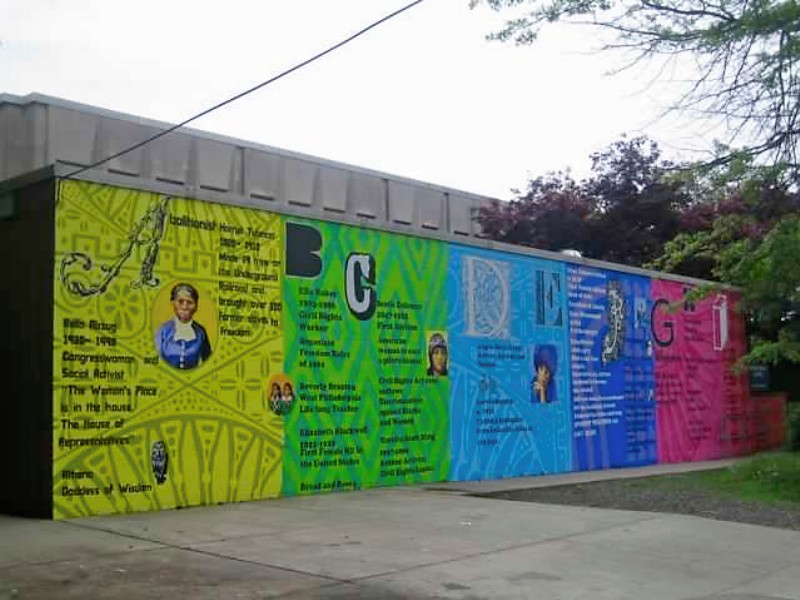
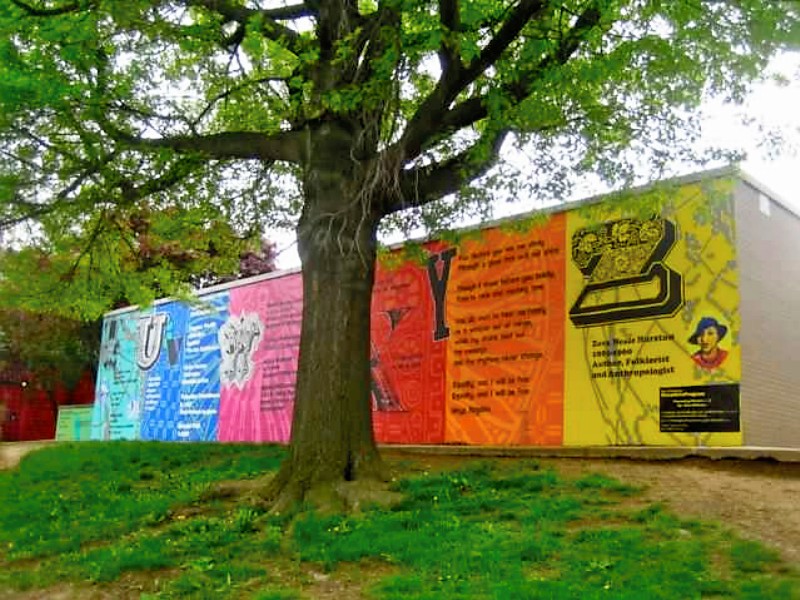
POST YOUR THOUGHTS HERE
Welcome to the on-line conversation for Women in Walled Communities, a cluster of three courses in a new 360° @ Bryn Mawr College that focuses on the constraints and agency of individual actors in the institutional settings of women's colleges and prisons.
This is an interestingly different kind of place for writing, and may take some getting used to. The first thing to keep in mind is that it's not a site for "formal writing" or "finished thoughts." It's a place for thoughts-in-progress, for what you're thinking (whether you know it or not) on your way to what you think next. Imagine that you're just talking to some people you've met. This is a "conversation" place, a place to find out what you're thinking yourself, and what other people are thinking. The idea here is that your "thoughts in progress" can help others with their thinking, and theirs can help you with yours.
Who are you writing for? Primarily for yourself, and for others in our cluster. But also for the world. This is a "public" forum, so people anywhere on the web might look in. You're writing for yourself, for others in the class, AND for others you might or might not know. So, your thoughts in progress can contribute to the thoughts in progress of LOTS of people. The web is giving increasing reality to the idea that there can actually evolve a world community, and you're part of helping to bring that about. We're glad to have you along, and hope you come to both enjoy and value our shared explorations. Feel free to comment on any post below, or to POST YOUR THOUGHTS HERE.

Choosing to be Silent

When I see this picture of a raindrop about to fall off the tip of this leaf, I can only imagine how quiet it will be in comparison to all the other sounds of nature surrounding it. There’s something so peaceful about this picture that makes it hard to remember that if we had the ability to zoom out and look beyond that particular leaf, as well as tune into our other senses, we might even forget the other sounds we would hear such as the rustling of leaves and the deafening sound of cicadas. Maybe it’s the focus of the camera on this leaf that makes it hard to think about what else is surrounding it. I imagine this leaf being in the woods, and thinking back on moments of when I was silenced, the woods probably would’ve been a good place to get away from it all.

The Topic of This Piece Has Been Censored
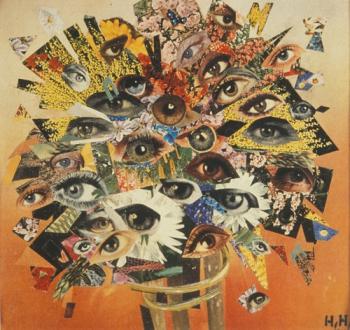
It’s ironic that the first topic I thought of when considering whether I’d ever felt silenced was a topic I’ve silenced myself from sharing on this blog. When Anne spoke to our class about the use of the blog, she said she hoped that by the end of the class we could each take responsibility for our words and use our given names in our blog posts. My silencing is less about taking responsibility for my words, and more about how willing I am to open myself up to others. And though my own name is slightly obscured on this blog, my posts all show up in a search of my full name on Google. For me, that’s terrifying.
What I’ve come to learn about interactions on the Internet is that nothing goes away. Last year, I wrote a post about the MTV debate that was occurring here at Bryn Mawr. Recently, I searched “MTV” and “napkin notes” on Google to see what came up and was surprised to find a blog citing my post from someone at the University of Texas. That’s not a problem – it’s exciting to realize that perfect strangers can be interested by what I have to say. In addition, because I still stand by what I said in those posts, I’m fine with them being associated with me.

Seeing without speaking
In class Thursday I was particularly haunted with the picture above, JHunter's visualization of silence. While my interpretation of “Bouquet of Eyes” varies from hers, I am grateful for the push towards looking differently at a subject that I thought I had adequately explored. It is this new interpretation that I will use now to speak toward my own experience with being silenced at my summer job.
This summer I had the misfortune of learning that silence can sometimes be a group phenomenon, and it is in these particular instances when the absence of voice can be the most dangerous. From June to August I worked at an overnight camp for underprivileged youth, like I have for the past three summers. The counselors range in age from 17-21, not much older than the children we watch over. It is difficult for me to talk about what happened this summer in a composed way, because the happiness and welfare of the campers was and still is my utmost concern and to see that threatened was infuriating.

This American Life: Act V
To give a little background, This American Life is a PRI radio show where each episode is dedicated to a theme that reflects, well, American life. The link above leads you to an episode called Act V and is without doubt one of my favorites. Succinctly put, it follows a group of men in prison who are putting on the fifth act of Hamlet. Hope you enjoy.

9Sept2012 S2: Light&Silence
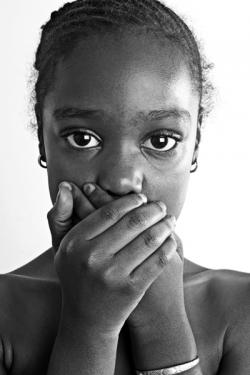
When looking at Jomaira’s images, I was actually a little startled. Not because their image reflects a dimension of silence I seldom imagine, but because several years ago, I would have likely put up a very similar image of silence. What startled me was that I didn’t realize how my first-gut connotations of silence have shifted in recent years. Before, my initial thoughts and feelings of silence would have been ones that were associated with oppression, the inability to speak, absence, dark—concepts that I think are evoked when looking at their images. But recently, I often associate silence with more positive notions and less tension. Just as one example of how and why, I think of silence and light together and chose my photo accordingly. We often forget how remarkably silent light is given what it does. Light, unassuming and silent, has capabilities that range from giving us the capacity of sight, the dichotomy of day and night, and also life itself.

How Silence Evolved in My Childhood
While scrolling through the visuals of silence on Serendip, I found myself deliberately returning to the image of Irene’s bedroom. I was captivated by the soft lighting, the warm brown colors and the simplicity of its decoration. I was reminded of my own bedroom back home. Similarly, the image of my bedroom is a place of peace and rest with its array of books, wall of mirrors and made bed. While I enjoyed seeing a bedroom that projected similar sentiments of comfort and intimacy, I know that the appealing visual of my bedroom is a facade. In contrast to the expected hospitable nature of a bedroom, my bedroom was a rather lonely and confined space for much of my life. So, as much as I wanted to feel the welcoming silence emanating from Irene’s image, I could not ignore how it was a visual reminder of my isolating relationship with silence.
Silent in Return for a Paycheck
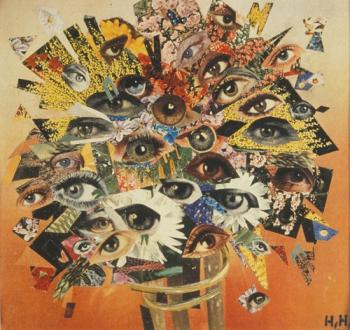
Before I begin writing about my experiences of silencing/being silenced, I think it is important note that it was difficult for me to think of such a time, and the privilege that comes with that. It privileges me because I can see myself as neither oppressor nor subordinated in this regard, at least on the surface. When I think of silencing someone, I think stereotypically yelling “silence!” as we saw from many popular movie scenes in the youtube clip. I would like to think that is hard for me to remember silencing someone because it is not something I do, but I am sure that is not the case. Even if I haven’t directly yelled “silence!” at someone, there are probably times I have silenced a person or group either with an offhand comment or by being a bystander and not helping a person that I recognized as needing a voice (i.e.: watching someone be bullied). However, memories of being oppressed are, in general, easier to conjure up than memories of being an oppressor.

Silence Against the Westboro Baptist Church


“I’m not going to dignify that with a response.” In my family, we use this as a jokey phrase when one family member insults another in a facetious manner. Though it becomes a laughing matter as the insulting party is chastened and the insulted vindicated, choosing not to dignify a truly offensive action with any sort of reply or reaction can be a powerful and provocative use of silence as a statement in and of itself. At my high school, we used our silence as a tool to combat the hatred of the Westboro Baptist Church (WBC), in a different manner of protest than that used by the Occupy demonstrators in Esty’s picture, who used their voices loudly to make a statement. Instead, we stood united against the WBC’s attempts to get a rise out of us or tear us apart.

Annotating docs on your computer...
Okay, folks, I think I've found what we've (well, I've) been looking for (ta dah!):
a way that you can read the articles for this class (all your classes?) on your computer,
and annotate the electronic text, without having to print anything out.
These are the steps that worked for me:
1) download (the free) Adobe Reader X from http://www.adobe.com/products/reader.html
2) open up one of the pdfs assigned for class reading
3) The Comment & Markup toolbar doesn’t appear by default, so either
select View > Comment > Annotations, or click the Comment button in the Task toolbar.
This will make both the highlighting and the sticky notes functions available, so go to town!
4) There are tutorials on how to use other features @
http://cjasn.asnjournals.org/site/misc/annotating.pdf
but, for now, these functionalities are enough for me!
Have fun--
Yours in the service of paper-less-ness
("I speak for the trees, for the trees have no tongues"),
A.

Colored Amazons available as Ebook!
Hey guys. Hopefully this is helpful but I just discovered that Colored Amazons is available as an Ebook through Ebrary. So, no paying!
Here's the link: http://site.ebrary.com/lib/brynmawr/docDetail.action?docID=10215097

Relevant TED talk about the Injustices in the American Justices System
I realized today that this 360 reminds me of one of my favorite TED talks by Bryan Stevenson, an activist and lawyer in the American justice system. Similar to our 360, Stevenson brings up issues of race and poverty in our justice, or more like our injustice, system. More importantly, he highlights how there is a silence in our society about the injustices that mar the image and realities of individuals in prison. I invite everyone to listen to this TED talk, it is definitely worth listening to and thought-provoking. I think he does a beautiful job at talking in depth about his vision for our justice system, the unheard voices in prison and the silence that keeps society as a whole from caring.
I also wanted to leave you with my favorite quote from the talk:
“Each of us is more than the worst thing we’ve done” –Bryan Stevenson
I have also posted the link here:
http://www.ted.com/talks/bryan_stevenson_we_need_to_talk_about_an_injustice.html

Impressions from A Journey into Speech
Having just finished Michelle Cliff's "A Journey Into Speech", my mind is running through associations. Images were conjured of Bertha, the voiceless character in Jane Eyre whom Mr. Rochester locks in the attack until she eventually burns the house down. Bertha's story is later written by a Caribean woman in Wide Sargasso Sea, because this caged woman is not only denied a voice in Jane Eyre, but she also has no history of her own, until Jean Rhys creates it.
I also thought of Audrey Lorde's quote about refusing the use the masters tools to dismantle the master's house. Cliff talks about her apprehension to using the essay form to write about Speechlessness, which makes sense. Instead, she advocates "mixing in the forms taught us by the oppressor, undermining his language, and co-opting his style, and turning it to our purpose" (33). Language is a space of intense, often unseen oppression, and I think that the decision to reject and then re-establish certain elements of language is an incredibly empowering one. Why must we use these words which exist, this grammatical structure, if it's inherently oppressive? We can navigate it, once we recognize it.

Musings on Cliff
Cliff addressed speech in a way that I haven’t really seen before but with which I totally identify. I’ve often struggled with my written voice, and had a more difficult time expressing myself this way than using my spoken voice. I think part of it is that I get hung up on word choice and organization, on having correct, acceptable, even beautiful writing, and I get lost, or rather I lose what I want to say. Cliff’s “Notes on Speechlessness” are written in noteform because formal writing “would have contradicted the idea of speechlessness,” and there have been many times when I’ve had complex ideas I’ve wished to express (particularly in essays) and have been unable to develop completely.
Cliff’s explanation of her own journey into speech makes me feel a bit more at ease about my inability to describe or work through certain ideas in written English, and at the same time I feel somewhat bad or hypocritical for saying this.
“To write as a Caribbean woman…demands of us retracing the African part of ourselves, reclaiming as our own, and as our subject, a history sunk under the sea, or scattered as potash in the canefields, or gone to bush, or trapped in a class system notable for its rigidity and absolute dependence on color stratification. On a past bleached from our minds… It means also… mixing in the forms taught us by the oppressor, undermining his language and co-opting his style, and turning it into our purpose”

Identity of the "American"
Something I found very interesting as I read Fire in the Mirror was the section where Smith asks, “To what extent do people who come to America have to give up something about their own identity to confirm to an idea of what an American is?” When I read this line it made me think of the idea that America, or as I like to clarify, the United States is a melting pot. A lot of people like to take this adjective as a good thing, where I on the other hand think of it as being something negative.
When you are melting things in a pot, you lose the taste of the individual ingredients. Same as United States, when people come from their countries to the United States, to a certain extend they automatically lose a bit of their culture. Small ways that begin depriving someone from their culture can be as small as by automatically having to start learning English, or not being able to run to any market and getting the ingredients they need to make the food they made back home. What I liked about Cliff’s piece is that she brought some of these issues to light, specifically in language.

Speechless but Full of Words
As I was reading both Smith's and Cliff's writings, I was struck by two statements: "'The word, the word above all, is truly magical, not only by its meaning, but by its artful manipulation"' (Smith Intro) and "When I began... to approach myself as a subject, my writing was jagged, nonlinear, almost shorthand"' (Cliff p31), I couldn't help but think of language as a tool that one has to learn how to use. So often do we see people that do not have the opportunities afforded to them to learn how to manipulate language that they get lost in translation. So often do I hear of people, including myself, feeling as though we have so much to say, but do not know how to say it. I find myself asking, what causes this disconnect? If I am answering this question for myself, I would say that my inability to treat language as something that can be manipulated as opposed to something that manipulates me, has to do with the insecurities imposed on me by my race, gender, culture, ethnicity and ideology. Despite having the education that I have had I continue to be hindered, and I fear that such feeling will always linger.

Power of voice
Cliff.
In Cliff's article, A journey into Speech, she revels her path of becoming a writer and what has influenced her the most in writing. I am curious about her comment about her first piece of work. She said she wanted to believe in herself but at the same time distanced her from who she was. I think this really showed soemthing about speech. People always say that you cannot hide true self forever. Your personality and life experiecnces are constantly placing markers and tags on the way you talk and speek. However, the literature and speech somehow provide wasy to present a decorated you. I am not saying the person you project through speech and writings is not real you, but not the whole truth. Well, I guess we do need some acting in real life to be able to presnet a better self in front of others.
Smith
I really like Smith's introdution about Fires in the Mirror. I personally think the title is very interesting. Fires represent something strong and hot. But the fires only exsits in the mirror. You can't touch it nor feel it, but only feel it. The visionlization of fires in the mirror gives me a feeling that fires might not be the fire we usually know.




